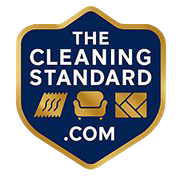L
LisaWagnerCRS
Guest
Do any of you have a reference (besides the IICRC S-520 standard) for the study that backs the 72-hour rule in water damage that says a category 1 (clear water) can move to category 3 (black water) in that time in regards to the affected contents?
I wrote about this on the dirt blog because I'm trying to shake out some of the things we say "are true" in this business, but when you dig a bit deeper, you see that there is no science backing it up.
I'd like someone to correct me on this one - please show me the science on this 72-hour rule, there has to be SOMETHING out there... I just can't imagine they'd just put it in without any proof. That would just make no sense.
Here's my post on MUS -
http://realdirtoncri.wordpress.com/2010 ... us-vs-mus/
Also... I'm joining Jim Pemberton on IAQ Radio this Friday in case any of you are REALLY super bored Friday at 12pm Eastern...
http://www.iaqradio.com
Jim will have entertaining things to share... and me, I'll probably just bitch about the same stuff I always bitch about.
You know me... always horribly predictable....
:-)
Lisa
I wrote about this on the dirt blog because I'm trying to shake out some of the things we say "are true" in this business, but when you dig a bit deeper, you see that there is no science backing it up.
I'd like someone to correct me on this one - please show me the science on this 72-hour rule, there has to be SOMETHING out there... I just can't imagine they'd just put it in without any proof. That would just make no sense.
Here's my post on MUS -
http://realdirtoncri.wordpress.com/2010 ... us-vs-mus/
Also... I'm joining Jim Pemberton on IAQ Radio this Friday in case any of you are REALLY super bored Friday at 12pm Eastern...
http://www.iaqradio.com
Jim will have entertaining things to share... and me, I'll probably just bitch about the same stuff I always bitch about.
You know me... always horribly predictable....
:-)
Lisa



